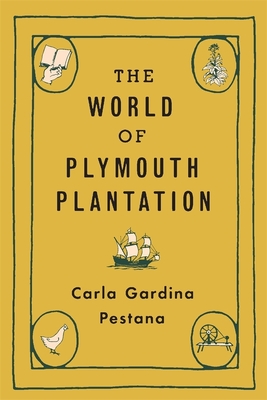Expedite your nonfiction book discovery process with Readara interviews, summaries and recommendations, Broaden your knowledge and gain insights from leading experts and scholars
In-depth, hour-long interviews with notable nonfiction authors, Gain new perspectives and ideas from the writer’s expertise and research, Valuable resource for readers and researchers
Optimize your book discovery process, Four-to eight-page summaries prepared by subject matter experts, Quickly review the book’s central messages and range of content
Books are handpicked covering a wide range of important categories and topics, Selected authors are subject experts, field professionals, or distinguished academics
Our editorial team includes books offering insights, unique views and researched-narratives in categories, Trade shows and book fairs, Book signings and in person author talks,Webinars and online events
Connect with editors and designers,Discover PR & marketing services providers, Source printers and related service providers

The World of Plymouth Plantation
History > United States - Colonial Period (1600-1775)
- Belknap Press
- Hardcover
- 9780674238510
- 8.3 X 5.8 X 1.1 inches
- 0.9 pounds
- History > United States - Colonial Period (1600-1775)
- (Single Author) Asian American
- English
Readara.com
Book Description
An intimate look inside Plymouth Plantation that goes beyond familiar founding myths to portray real life in the settlement--the hard work, small joys, and deep connections to others beyond the shores of Cape Cod Bay.
The English settlement at Plymouth has usually been seen in isolation. Indeed, the colonists gain our admiration in part because we envision them arriving on a desolate, frozen shore, far from assistance and forced to endure a deadly first winter alone. Yet Plymouth was, from its first year, a place connected to other places. Going beyond the tales we learned from schoolbooks, Carla Gardina Pestana offers an illuminating account of life in Plymouth Plantation.
The colony was embedded in a network of trade and sociability. The Wampanoag, whose abandoned village the new arrivals used for their first settlement, were the first among many people the English encountered and upon whom they came to rely. The colonists interacted with fishermen, merchants, investors, and numerous others who passed through the region. Plymouth was thereby linked to England, Europe, the Caribbean, Virginia, the American interior, and the coastal ports of West Africa. Pestana also draws out many colorful stories--of stolen red stockings, a teenager playing with gunpowder aboard ship, the gift of a chicken hurried through the woods to a sickbed. These moments speak intimately of the early North American experience beyond familiar events like the first Thanksgiving.
On the 400th anniversary of the Mayflower landing and the establishment of the settlement, The World of Plymouth Plantation recovers the sense of real life there and sets the colony properly within global history.
Author Bio
Carla Gardina Pestana, Professor and Joyce Appleby Endowed Chair of America in the World, studies the 17th and 18th century Atlantic worlds, especially the English Atlantic; the Caribbean; and U.S. religious history.
Carla Gardina Pestana received her Ph.D. at UCLA in 1987 in early American history. Before joining UCLA’s faculty in 2012, she taught at The Ohio State University, Canterbury University in Christchurch, New Zealand, and Miami University in Oxford, Ohio.
Professor Pestana has published books on religion and empire in the seventeenth and eighteenth centuries. Her first book, Quakers and Baptists in Colonial Massachusetts, considered illegal religious communities in New England’s less tolerant colony. Protestant Empire: Religion and the Making of the British Atlantic World (2009), explored the religious transformation brought by English expansion into the Atlantic world.
On the subject of empire, she authored The English Atlantic in an Age of Revolution, 1640-1661 (2004), a study of the effects of revolutionary upheaval in England, Ireland, and Scotland on England’s nascent empire.
She is also the co-editor with Sharon V. Salinger of Inequality in Early America (1991), a volume of essays honoring their dissertation advisor, Gary B. Nash.
Also with Salinger, she compiled and edited a multi-volume collection of primary texts on the early English engagement in the Caribbean, for British publishing house Pickering-Chatto, entitled The Early English Caribbean, 1570-1700.
The Belknap imprint at Harvard University Press published Pestana’s The English Conquest of Jamaica: Oliver Cromwell’s Bid for Empire
At the Huntington Library she delivered a public lecture on that project, in connection with her position as Robert C. Ritchie Distinguished Fellow.
Listen to the talk here: Oliver Cromwell’s Consolation Prize? The English Conquest of Jamaica--http://www.huntington.org/audio/2016_0302_oliver_cromwells_consolation_prize.mp3
Here latest book, also with Belknap/Harvard, is The World of Plymouth Plantation (2020): https://www.hup.harvard.edu/catalog.php?isbn=9780674238510.
Between 2016 and 2018, she blogged for the Huffington Post; follow this link to read posts: http://www.huffingtonpost.com/author/cgpestana-346
Her teaching interests range over similar fields to those explored in her publications. She contributes her expertise in early American history, the history of American religion, piracy, and the history of the early modern world. She has taught undergraduate courses on Atlantic history and early American history, on the history of American religion, as well as on such topics as Salem witchcraft, Plymouth Plantation, and pirates in the Caribbean.
Professor Pestana teaches the introductory course for first year U.S. graduate students, History 246A (U.S. History and Historiography to 1800). Her 14A course, History of the Atlantic World, was offered for the first time in 2019. She offers occasional Fiat Lux courses, on topics including THE GLOBAL CLIMATE CRISIS OF THE SEVENTEENTH CENTURY, the novel WOLF HALL considered as an exercise in historical revision, THE ADVENTURES OF HENRY PITMAN (a seventeenth-century prisoner of war, indentured servant, runaway and physician), and the contrasting national origin stories associated with 1619 and 1620.
She is the immediate past President of FEEGI (Forum on Early-Modearn Empires and Global Interactions); an OAH Distinguished Lecturer, 2016-2022; a member of the editorial board of the American Historical Review ; and a member of the Nominating Committee for the AHA, 2020-22.
Source: University of California Los Angeles - Social Sciences Division
Videos






Community reviews
No Community reviews

